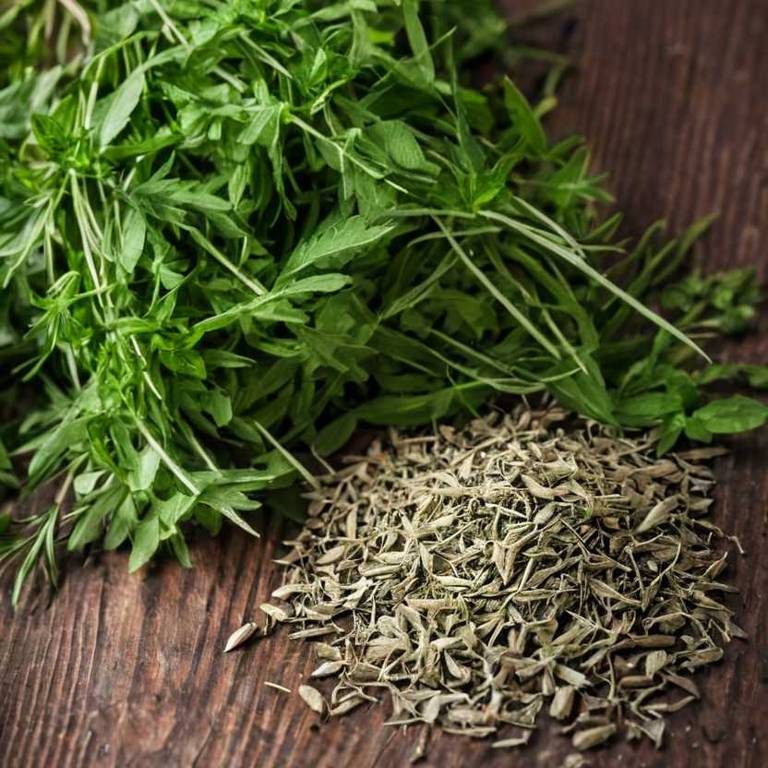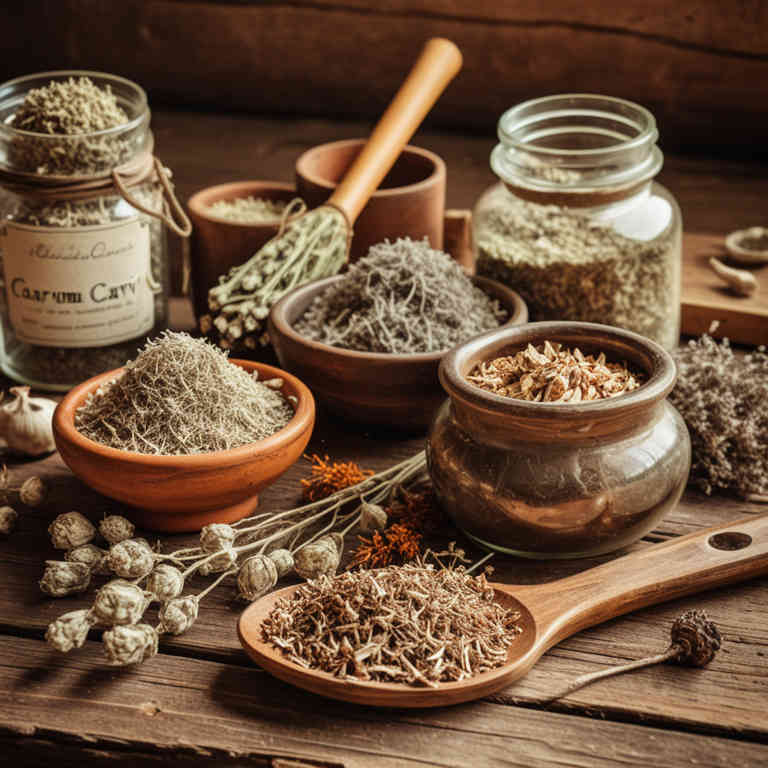10 Best Carum Carvi Preparations

The best medicinal preparations of Carum carvi are teas, decoctions, tinctures, capsules, and oils, each offering unique benefits for health and wellness.
Carum carvi tea is commonly used to soothe digestive issues and promote respiratory health.
Decoctions involve simmering the herb to extract its essential oils and minerals, enhancing its therapeutic properties.
Tinctures provide a concentrated form, ideal for quick absorption and potency.
Capsules offer a convenient and standardized dosage, while oils are used topically for muscle pain and skin conditions.
These diverse preparations make Carum carvi a versatile herb in traditional and modern herbal medicine.
Below there's a list of the 10 best herbal preparations of carum carvi for medicinal purposes.
1. Teas
Carum carvi teas is commonly used to relieve digestive issues, alleviate respiratory congestion, and promote overall wellness.
This herbal preparation is often employed to treat ailments such as indigestion, bloating, coughs, and sore throats. The bioactive constituents responsible for its medicinal properties include monoterpenes, sesquiterpenes, and flavonoids, which possess anti-inflammatory, antimicrobial, and carminative effects. Additionally, the essential oils in Carum carvi contribute to its ability to soothe the respiratory tract and ease gastrointestinal discomfort.
These properties make it a popular remedy in traditional and complementary medicine.

2. Decoctions
Carum carvi decoctions is commonly used to relieve digestive issues, such as bloating, gas, and indigestion, as well as to alleviate respiratory conditions like coughs and bronchitis.
This herbal preparation is also used to reduce inflammation and soothe sore throats. The most common medicinal uses include treating gastrointestinal disorders, respiratory infections, and menstrual cramps. The bioactive constituents responsible for its medicinal properties include essential oils like carvone and limonene, as well as flavonoids and phenolic compounds that have anti-inflammatory, antimicrobial, and carminative effects.
These components work together to provide the therapeutic benefits associated with Carum carvi decoctions.

3. Tinctures
Carum carvi tinctures is commonly used to relieve digestive issues, such as bloating, gas, and indigestion, as well as to soothe respiratory conditions like coughs and bronchitis.
These tinctures are also used to alleviate nausea, motion sickness, and menstrual cramps. The most common medicinal uses include treating gastrointestinal disorders, respiratory infections, and women's health issues. The bioactive constituents responsible for these effects include essential oils like carvone and limonene, as well as compounds such as flavonoids and alkaloids.
These components have antispasmodic, carminative, and anti-inflammatory properties that contribute to the tincture's therapeutic benefits.

4. Capsules
Carum carvi capsules is commonly used to relieve digestive issues, such as bloating, gas, and indigestion, as well as to support respiratory health by alleviating coughs and bronchitis.
They are also used to treat headaches, nasal congestion, and menstrual discomfort. The most common medicinal uses include addressing gastrointestinal disorders, respiratory infections, and menstrual pain. The bioactive constituents responsible for these effects include essential oils like carvone and limonene, as well as flavonoids and volatile compounds that have antispasmodic, anti-inflammatory, and analgesic properties.
These components work together to provide the therapeutic benefits associated with Carum carvi.

5. Oils
Carum carvi oils is commonly used to relieve digestive issues, respiratory conditions, and skin irritations.
It is often employed to treat ailments such as indigestion, colic, coughs, and eczema. The bioactive constituents responsible for its medicinal properties include monoterpenes, sesquiterpenes, and essential oils like carvone and limonene. These compounds possess antispasmodic, carminative, and antimicrobial effects.
Its versatility makes it a valuable remedy in traditional and complementary medicine.

7. Syrups
Carum carvi syrups is commonly used to relieve digestive issues, respiratory conditions, and to promote overall wellness.
These syrups are often employed to treat ailments such as indigestion, nausea, coughs, and congestion due to their soothing and expectorant properties. The bioactive constituents responsible for these medicinal effects include volatile oils, such as carvone and limonene, as well as flavonoids and mucilage. These compounds contribute to the plant's anti-inflammatory, carminative, and antispasmodic actions.
Carum carvi syrups also have a mild soothing effect on the respiratory tract, making them beneficial for easing symptoms of colds and bronchitis.

8. Lozenges
Carum carvi lozenges is commonly used to relieve symptoms of respiratory and oral conditions such as sore throat, cough, and inflammation.
These lozenges are often employed to treat ailments like tonsillitis, laryngitis, and other inflammatory throat conditions. The bioactive constituents responsible for their medicinal properties include essential oils, such as carvone and limonene, as well as flavonoids and terpenes. These compounds possess anti-inflammatory, antimicrobial, and expectorant effects.
Carum carvi lozenges are also believed to soothe irritation and promote healing in the mucous membranes of the mouth and throat.

9. Liniments
Carum carvi liniments is commonly used to relieve pain, reduce inflammation, and treat skin conditions.
These liniments are often applied topically to address ailments such as muscle aches, joint pain, and minor skin irritations. The medicinal properties of Carum carvi liniments are attributed to bioactive constituents like monoterpenes, sesquiterpenes, and essential oils, which have anti-inflammatory and analgesic effects. Additionally, the presence of compounds such as carvacrol and limonene contributes to its antimicrobial and soothing properties.
This herbal preparation has been traditionally used in folk medicine for its therapeutic benefits on the skin and musculoskeletal system.

10. Creams
Carum carvi creams is commonly used to relieve symptoms of skin conditions, muscle pain, and digestive discomfort.
These creams are often applied topically to treat ailments such as eczema, psoriasis, and minor burns due to their anti-inflammatory and soothing properties. They are also used to alleviate muscle aches and joint pain, providing a natural alternative to conventional pain relievers. The bioactive constituents responsible for these effects include essential oils like limonene and carvacrol, as well as flavonoids and mucilage, which contribute to the plant's anti-inflammatory, antimicrobial, and digestive benefits.
Overall, Carum carvi creams offer a versatile herbal remedy with a range of therapeutic applications.
